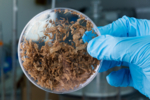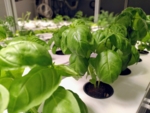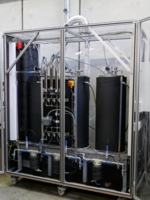-
Project FuTuReS - 12/12/2022
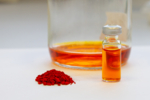
Algae are aquatic organisms that flourish in a huge variety of species. But that's not all: they are also small green mini-factories that can produce all kinds of valuable materials. All they need is water, light, CO2 and a few nutrients that can be recycled from biogas or sewage treatment plants. Researchers have now determined the optimal framework conditions and practicability of process methods for agricultural algae cultivation.
https://www.biooekonomie-bw.de/en/articles/news/microalgae-high-quality-products-domestic-agriculture
-
-
-
-
Project BW2Pro - 29/08/2022
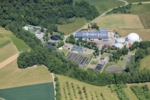
In 2020, Germany’s population collected over 5 million tonnes of biowaste. Most of this was composted, and some was fermented into biogas. Scientists in Baden-Württemberg think there's room for more. Within the project ‘Biowaste to Products’ (BW2Pro) they want to transform biowaste into new products in a biorefinery. The idea is to produce biodegradable plant pots, mulch material, fertilisers, enzymes and biobased plastics in addition to…
https://www.biooekonomie-bw.de/en/articles/news/biowaste-products-biorefinery-transforms-biowaste-new-products
-
Press release - 02/03/2022
The Ministry for the Environment, Climate Protection and the Energy Sector is funding the new research project RoKKa which is used to prove the viability of recovering raw materials from wastewater. This adds a crucial function to the scope of a conventional sewage treatment plant. Together with the operators of the sewage treatment plants in Erbach and Neu-Ulm, the project partners demonstrate the positive contribution towards climate protection…
https://www.biooekonomie-bw.de/en/articles/pm/die-klaeranlage-der-zukunft-heisst-bioraffinerie
-
Further utilisation of plant residues - 25/11/2021
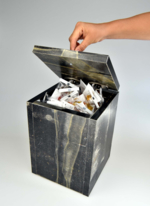
Biogas plants produce energy-rich gas by fermenting biomass. This process generates both liquid and solid fibrous and particulate fermentation residues. Researchers at the German Institutes of Textile and Fibre Research (DITF) have now managed to create a resistant and water-repellent fibre composite material from solid hop residues that can be used as a veneer to coat wood panels.
https://www.biooekonomie-bw.de/en/articles/news/novel-fibre-composite-made-hop-fermentation-residues
-
-
Specialized in Sustainability - 30/09/2021
The research project RUN (Rural Urban Nutrient Partnership) explores how waste might be used more efficiently as a resource. In this project, Veronika Fendel investigates how recyclable materials from biowaste and domestic wastewater can be fed back into the material cycle in the best possible way.
https://www.biooekonomie-bw.de/en/articles/pm/circular-economy-future
-
Reduction of greenhouse gases in wine production - 31/08/2021

In the EU project REDWine, the CO2 produced during wine fermentation is captured and used to produce algae biomass. Novis GmbH from Tübingen supplies the complete system for CO2 utilisation. The aim of the project is to reduce the share of global warming caused by wine production in a way that is economical for producers.
https://www.biooekonomie-bw.de/en/articles/news/redwine-project-and-climate-change
-
Plastics from the field - 12/08/2021
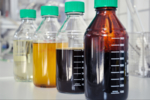
Huge amounts of waste are produced both during food production and by consumers. The Conversion Technologies of Biobased Resources group at the University of Hohenheim’s Institute of Agricultural Engineering has developed a process to convert this biomass into hydroxymethylfurfural (HMF), the highly potent basic chemical that is used to produce plastics.
https://www.biooekonomie-bw.de/en/articles/news/great-potential-biological-residues
-
-
Press release - 27/07/2021
The Hallertau is Germany's largest hop-growing region. During harvesting, hop bine chaff is left over, which is converted into environmentally friendly bio natural gas on site in a biogas plant. But that is not the end of the utilization chain for this fiber plant. Researchers at the German Institutes of Textile and Fiber Research Denkendorf (DITF) have used the plant-containing biogas digestate to produce a composite material that can be…
https://www.biooekonomie-bw.de/en/articles/pm/furniture-biogas-plant
-
Press release - 09/07/2021
Refuels are renewable fuels that can be produced in different ways. When they are mixed and processed such that they meet the existing fuel standards, they are suited for all types of combustion engines. This is the result of the latest vehicle and fleet tests within the project “reFuels – Rethinking Fuels” at Karlsruhe Institute of Technology (KIT). Compared to fully fossil fuels, refuel mixes allow for a CO2 reduction by 25% at least. Moreover,…
https://www.biooekonomie-bw.de/en/articles/pm/refuels-are-suited-wide-use
-
-
-
Paper production from plant fibres - 20/01/2021

Many consumers don't care about exactly how their paper packaging is made and what it is made of as long as it is "eco". But even producing recycled paper, trees need to be felled. An alternative could be paper made from cup plant. Together with partners, a company called Silphie Paper has developed concept for obtaining fibres for a new type of grass paper, while also producing heat, energy and nutrients for natural fertilisers.
https://www.biooekonomie-bw.de/en/articles/news/one-cycle-ecopaper-energy-and-fertiliser-made-silphium-perfoliatum
-
-
The “Rhizo-Lentil" EIP-AGRI project - 20/05/2020
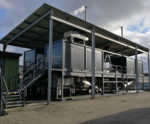
NovoCarbo GmbH produces biochar from plant residues such as wood chips, nutshells and manure. Different feedstocks, and the way these materials are processed, create biochars with different properties. This makes biochar suitable for different uses, including as a soil conditioner, in biogas plants or as bedding for stables and cowsheds. The Rhizo-Linse project is currently investigating whether biochar is also suitable as inoculant carrier for…
https://www.biooekonomie-bw.de/en/articles/news/novocarbo-turns-plant-waste-into-biochar
-
Dossier - 28/04/2020
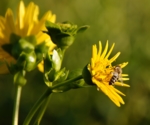
Biomass from forestry and agriculture along with residues from industry and households can contribute to our energy and raw material shift. Sustainable, regenerative biomass-based energy can become part of the energy mix of the future within the framework of a bioeconomy.
https://www.biooekonomie-bw.de/en/articles/news/Sustainable-bioenergy
-
Biosensors - 09/04/2020
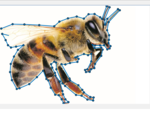
Sensor networks are one of the keys to achieving digitalisation of the bioeconomy. Sensor networks are on the way to becoming important analysis and control instruments for energy-efficient and sustainable material cycles. Dieter Hertweck, Professor of Business Information Systems at Reutlingen University of Applied Sciences, shows what is already possible in digital agriculture and waste recycling and what is feasible for the future.
https://www.biooekonomie-bw.de/en/articles/news/Sensors-for-the-bioeconomy
-
Biogas and wood as components of the energy transition - 10/02/2020
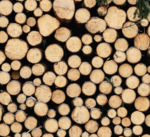
Decentralised, controllable and stable - renewable energy is an important component in the transition to a bioeconomy without fossil fuels. BIOPRO spoke to PD Dr. Andreas Lemmer from the State Institute of Agricultural Engineering and Bioenergy at the University of Hohenheim and Prof. Dr. Stefan Pelz, scientific director of the Institute for Applied Research and professorat the University of Applied Forest Sciences Rottenburg.
https://www.biooekonomie-bw.de/en/articles/news/New-perspectives-for-bioenergy
-
-
Article - 27/03/2019
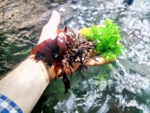
Algae are frugal organisms. They require only light, water, minerals and carbon dioxide to be able to produce biomass. These properties will now be exploited economically in a two-year research project. Dr. Stefan Sebök from the University of Hamburg plans to study the holistic utilisation of degradation products of a biogas plant in Wallerstädten by linking them to land-based algae cultivation.
https://www.biooekonomie-bw.de/en/articles/news/residues-from-biogas-plants-as-feed-for-algae
-
Website address: https://www.biooekonomie-bw.de/en/search

